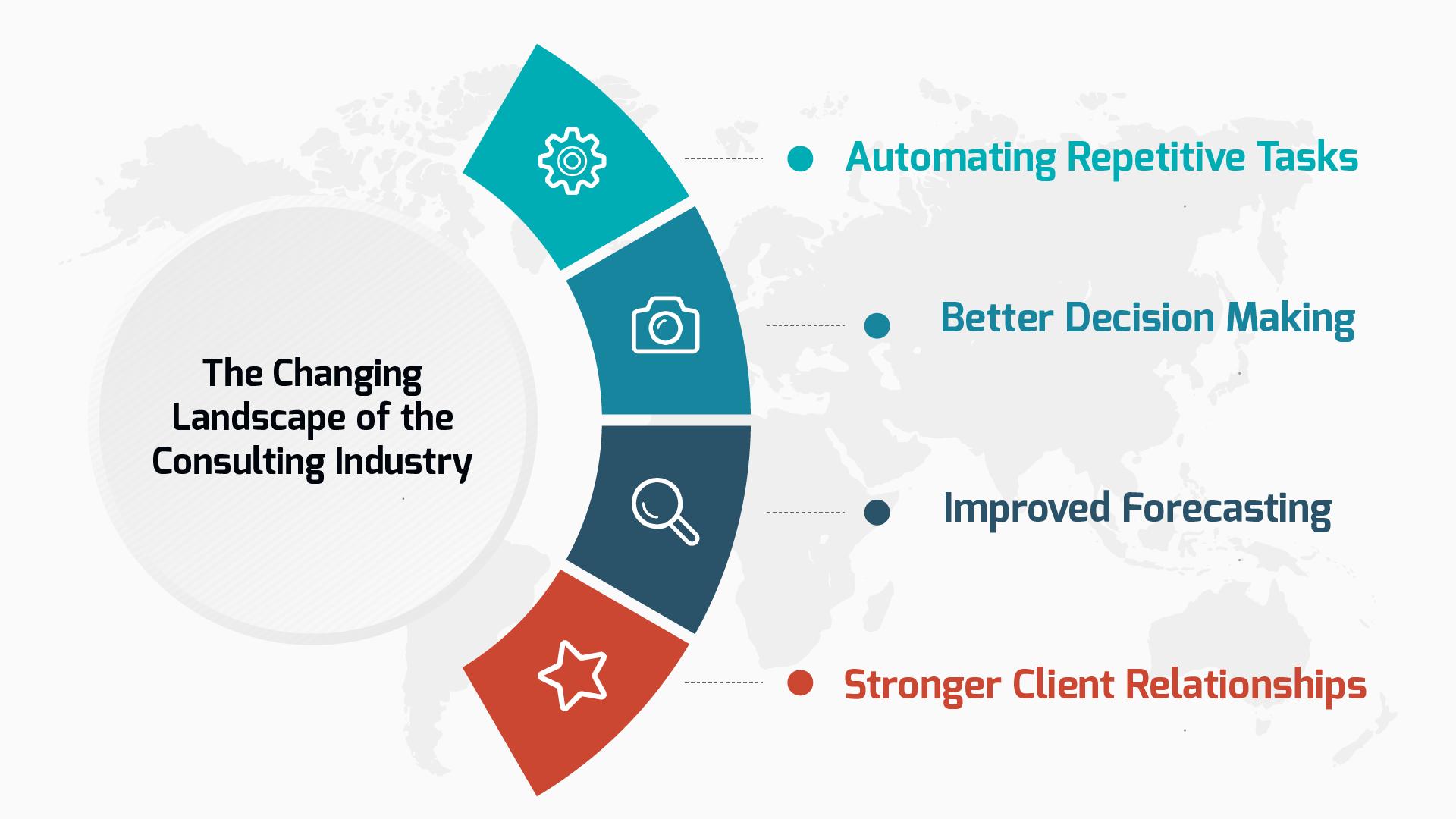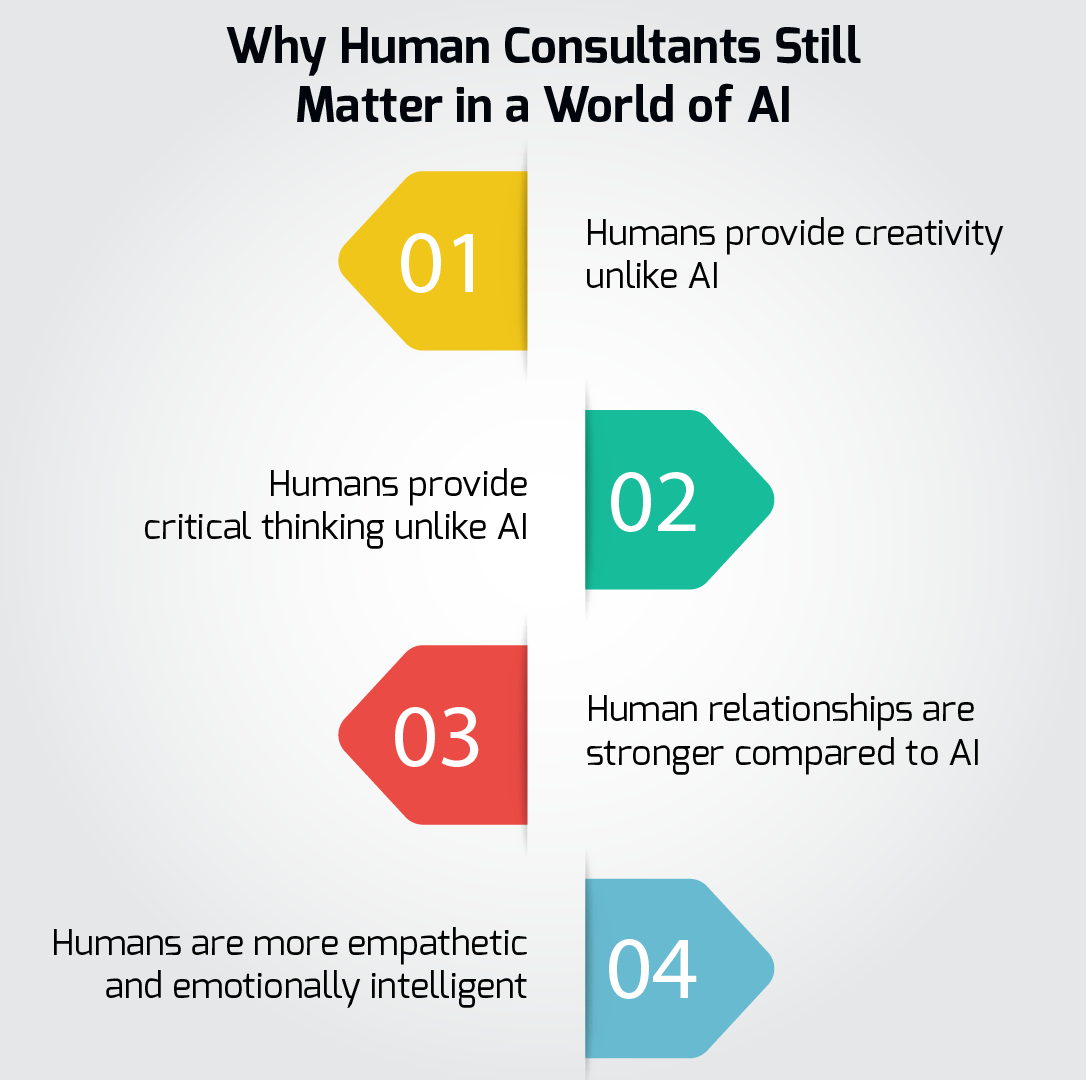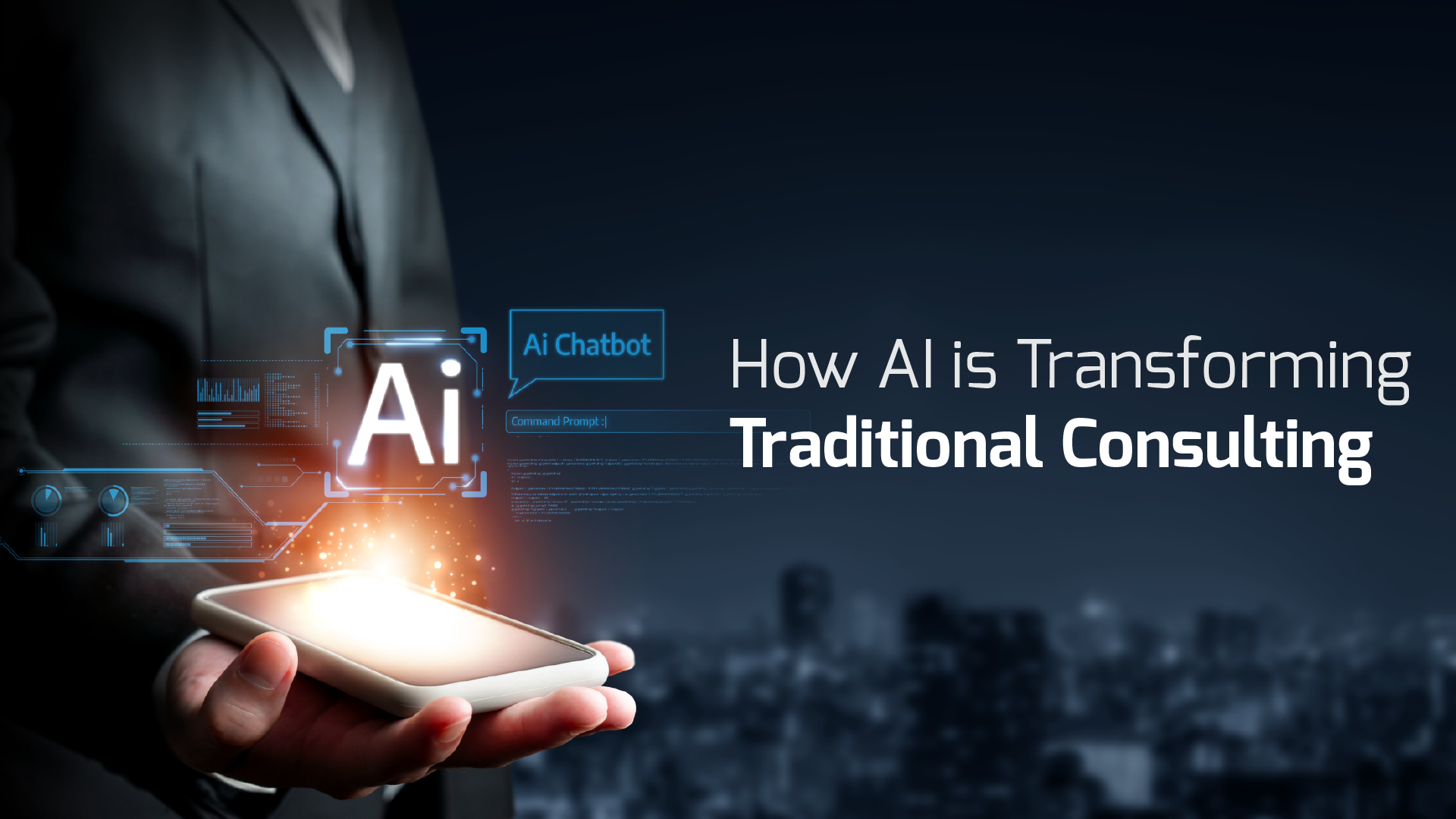We all know IT consulting is constantly changing, especially now with the advancements in AI. Maybe you are looking to get into consulting or maybe you have been in the industry for quite some time: the question is in what ways will consulting change in the future and how should we prepare?
The IT consulting market has been steadily growing, with the size in the US up by more than 30% between 2011 and 2019, according to Statista. There are over 700,000 management consulting firms around the world with the big four (Deloitte, EY, KPMG, and PwC) all outperformed high growth markets. From 2018 to 2028, projections show the growth continuing, with a growth rate of 11%.
PwC has promised to invest $12 billion dollars to open 100,000 new consulting roles in the upcoming five years. This means there are a lot of opportunities for workers to meet the strong demand. In addition, major consulting firms continue to hire fresh university graduates to meet the rising demand.
[For more information, make sure you look into PTP consulting which is comprised of the best in IT consulting in AI/ML, web development, Salesforce, CRM, campaign management, and customer support.]
With all this in mind, several key questions remain regarding the role of AI in IT consulting: how will it affect efficiency, decision-making, and relationships with clients? Also, we will be looking into some of the risks AI poses to traditional consulting and whether human consultants should be worried about being replaced by AI.
Areas of Change in the Consulting Industry

When it comes to efficiency, we all know that AI can optimize business operations, allowing workers to focus on more important tasks. By automating repetitive tasks, it leads to time saving and increased resources to allocate.
EY was able to leverage AI to optimize financial reporting processes for various clients, including large multinational corporations, significantly reducing the time required to generate complex financial reports. Using their AI-driven EY Helix tools, they allowed consultants to focus on strategic financial planning and better advise clients on growth opportunities.
Another interesting statistic comes from a survey conducted by Deloitte which stated that 74% of organizations found AI technologies helped them to accelerate data analysis processes. This is really eye-opening as it demonstrates how useful AI has already been for consulting firms.
Forecasting is another area where AI can greatly help consulting firms. In a survey by EY, 84% of business leaders agreed that AI technologies have helped them improve their forecasting accuracy.
AI improves decision-making in the consulting industry by providing clients with real-time data and insights. Big data analysis—using machine learning algorithms and natural language processing techniques—helps companies make better decisions based on customer behavior patterns. Hotel chains are able to use AI to dynamically adjust room prices based on real-time demand predictions, using tools like Duetto’s Revenue Strategy Platform. This allows companies to remain competitive and maximize revenue without constant external output.
Furthermore, we can see some benefits with AI in consulting when it comes to building great client relationships. AI-powered chatbots are one example, which consulting firms deploy to answer clients’ simple questions and help clients navigate the process.
Note that this does not mean that AI should do the heavy lifting when it comes to relationship building with clients, because humans are still greatly needed in this area. There should be a balance that works for the consulting firm between AI and humans when it comes to client relationships because too much AI use can cause clients to feel disconnected.
Challenges and Risks
Traditional consulting models are facing many challenges with AI technologies. The advancements in speed, efficiency, and cost effectiveness have raised the question of whether these large consulting firms are relevant or not. Even the corporate structure has been shifting towards more agile and decentralized organizations. The reliance on big consulting firms for decision-making validation is weakening as companies seek more direct and accountable guidance from specialized boutique-type firms.
Algorithmic bias is another major challenge that consultants are facing as they move into this AI transformation. One of the key risks with AI is the reinforcement of stereotypes. Sometimes gen-AI models that are trained on vast datasets can inadvertently perpetuate harmful stereotypes if those types of patterns exist in the data. This will affect the decision-making process negatively if not corrected.
Moreover, these biases can lead to discrimination and inequality. For example, some facial recognition systems demonstrate higher error rates for people with darker skin tones. Even in areas such as automated content generation, biased outputs can impact hiring decisions or educational resources which can lead to unequal treatment.
Another area of concern with AI is cybersecurity. Consulting firms use large amounts of sensitive data to train and deploy AI models, making data security a priority. This makes them targets for criminals to attack vulnerabilities in data storage, processing, and transmission. Consulting firms should address these risks with a comprehensive strategy focused on in-depth cybersecurity measures and compliance with regulations. In the end, we need to remember that AI could improve consulting in a variety of ways, however, it is not perfect and needs to be monitored.
[For more information on cybersecurity and its importance, check out the roundup for April and May of 2024 in this PTP Report]
Will AI Replace Human Consultants?

The reality is that our world is changing, and people often wonder if they can be replaced by AI sometime in the future. As of right now, there are still things that humans can do that AI cannot. Things like creativity, critical thinking, and client relationship building are what makes humans so important in consulting. These types of abilities provide much needed value to clients that AI alone would be unable to bring forth.
In the future, more and more companies will balance AI with human consultants through strategic partnerships. There are obviously things that AI can do much better than humans such as automation and by providing data driven insights. However, human consultants will provide the human touch with skills such as interpretation, judgment and strategic vision. An interesting statistic from BCG research reveals that companies capable of successfully implementing AI in collaboration with human expertise achieve a 30% increase in productivity and a 25% boost in profitability.
There will even be partnerships between consulting firms and AI startups with the goal of staying ahead of technological advancements. These partnerships will provide access to cutting edge AI solutions and foster innovation. All in all, while it is understandable to worry about being replaced by AI, there are still many skills that only humans can provide, especially around building client relationships.
Think about it: how many times has it frustrated you when you have had to work with AI instead of a human? Sometimes, it can be irritating and tiresome when the AI doesn’t understand you, and you just want to talk to a real person. While AI has many capabilities, especially in consulting, its potential is still limited.
[For a closer look into AI and how it will affect the job market, take a look at this PTP Report]
Conclusion
This is only the beginning of the transformation as AI continues to change and advance in ways we cannot possibly imagine. When it comes to consulting, it is important to be aware of how AI will affect the industry. Areas such as decision-making, forecasting, and client relationships will experience a great deal of changes.
While this AI transformation contains many positives for the consulting industry, it is equally important to remember the challenges and risks. Consulting firms should prepare for things such as algorithmic bias, discrimination, and inequality when dealing with AI. Data must be secured to prevent cyber-attacks.
Finally, it seems only reasonable for people, not just in consulting but a wide range of jobs, to ask themselves if they are at risk of being replaced by AI. While this is always a possibility, it is important to remember what makes human interaction so special. We need humans for things like critical thinking, creativity, and much more. Also, client relationships have a stronger foundation when built by humans as opposed to AI.
The consulting industry is growing at a rapid pace and there are many job opportunities for people. Make sure to stay updated with all the news regarding AI, consulting, cybersecurity, and much more on the PTP Report. In these stressful and changing times it is important to remember why you as a human being are a necessity in a field such as consulting.
References
Digital Transformation in Consulting Organizations, Medium
From Disruption to Adaptation: How AI is Transforming the Future of Business Consulting, Medium
Gen AI Revolution Is Reshaping The Future Of Traditional Consulting, Forbes
How AI is Reshaping the Consulting Industry, IRG
How Artificial Intelligence Changes Consulting, HFTP
Job Outlook For Consultants in the United States, Zippia
The Ultimate List of Consulting Statistics, Trends & Facts for 2024, Runn
Will Artificial Intelligence (AI) Replace Consultants? Future of Consulting, Boardroom Advisors Star





